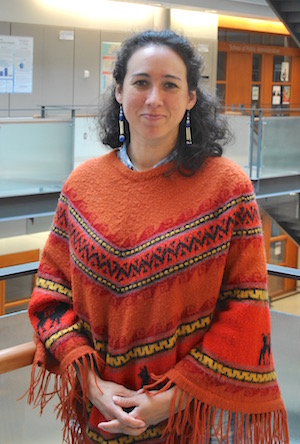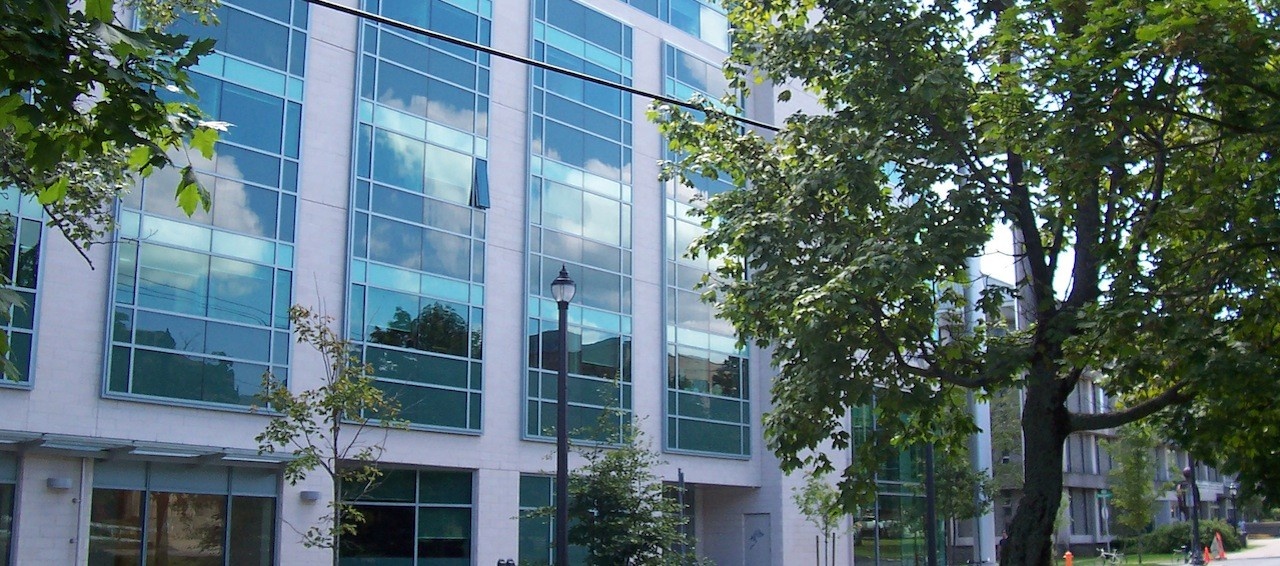News
» Go to news mainStorytelling, heritage and the environment come together for MES graduate
 “I have always been interested in nature and the land,” says Shalan Joudry. “Even as a young teen, I wanted to help ecosystems and people coexist better.” Joudry, who hails from Kespukwitk, the Mi’kmaw region of southwestern Nova Scotia, has been learning to do that in different ways ever since. At convocation this month, she will officially add a Master of Environmental Studies (MES) degree to her toolbox.
“I have always been interested in nature and the land,” says Shalan Joudry. “Even as a young teen, I wanted to help ecosystems and people coexist better.” Joudry, who hails from Kespukwitk, the Mi’kmaw region of southwestern Nova Scotia, has been learning to do that in different ways ever since. At convocation this month, she will officially add a Master of Environmental Studies (MES) degree to her toolbox.
Joudry focused on different areas before coming to the School for Resource and Environmental Studies (SRES). “Although I always knew I wanted to study ecology, I was also very artistic,” she explains. A published poet at age 11, Joudry studied audio engineering in Ontario and participated in various artistic endeavours before eventually enrolling in McGill University’s agricultural and environmental sciences program.
After completing her undergraduate degree, Joudry returned to Nova Scotia and began working on ecological projects, first in Kejimkujik National Park, then in her community, Bear River First Nation. “I was working on terrestrial biomonitoring, climate change awareness and species at risk,” she explains. “I thought, I should turn my research of the ecosystem into a Master’s.”
She entered the MES program ready to combine her passions for ecology and the arts with a third passion—Mi’kmaw ways of learning and expression. For her thesis, Joudry studied fire in an environmental context. “I wanted to understand fire from a Mi’kmaw worldview. The main methodology was speaking with a few Mi’kmaw Elders around the province,” she explains. “But I also had to look at the language, our stories and the way we relate to the land.” Seeing through the Mi’kmaw lens set Joudry’s thesis apart from much academic ecology work. The more common way non-Mi’kmaw scholars approach the subject of fire, she says, is by focusing on its history and its uses on the landscape. “From a Mi’kmaw worldview, there’s so much more,” she says, “about the ceremonial use of fire and the element of fire.”
Incorporating Mi’kmaw learning and knowledge systems into her thesis work led to a rich learning experience, and not only for Joudry. Describing her research to her classmates and seeing its impact on them, she says, is one of her best memories of her degree. She also remarks on a conversation with her supervisors towards the end of her degree: “We realized that the way we were talking about the project was no longer the same, and I was smiling, thinking, ‘look at all that we’ve learned on this journey together.’”
Joudry gives immense thanks to her supervisors. “Considering my thesis took me so long, it was such a blessing that my supervisors and my school were supportive in helping me to complete that journey,” she says. Joudry’s supervisors were Dr. Annamarie Hatcher from Cape Breton University and SRES’s Dr. Karen Beazley, who nominated Joudry’s thesis for a Governor General’s Academic Medal. Also on the thesis committee was Mi’kmaw Elder Albert Marshall, who inspired Joudry to continue her thesis work when she lacked motivation and energy. “I’m a mom of two young girls; they were very young when I started, and for most of this work I was a single mom,” she explains. She credits the encouragement of the Elders and university-based advisors with helping get her through, and for giving her a reason to keep going: “I knew that I needed to finish this for the participants, to honour them.”
For Joudry, the experience wasn’t just personal. “It’s about making sure that future Indigenous scholars can look around and say, ‘she did it, and he did it,’ and so on,” she says. “It’s important to have more Mi’kmaw theses out there and I was really proud to do a thesis that acknowledged Mi’kmaw knowledge systems.” Joudry defended her thesis in Bear River First Nation in a ceremony opened by Elders, becoming only the second SRES student to defend a thesis off campus. “Defending in my community was amazing,” she says.
With her degree complete, Joudry continues to intertwine her devotion to the environment, her culture and the arts as a professional oral storyteller. She often receives invitations to speak in public schools. “Some of my poetry and stories share an ecological message,” she says. “In Mi’kmaw culture, you don’t make a wall between domains, but you weave them. I use story to express our ecological teachings, and then conversely, all of my ecological studies inform my art.” Joudry also continues her efforts to preserve species at risk and works at Stone Bear Tracks and Trails in Bear River. “There, I call myself a storyteller but also an ecological and cultural interpreter and so the work I do uses all those elements,” she says. “At Stone Bear, for example, we take people on a short walk in the woods and now I get to share some of what I’ve learned from my MES and the Elders.
“Coming out of MES, I feel like my work is deeper and I’m making more connections,” says Joudry. “I understand my work and my role better.”
Recent News
- Finding his place: Juan Chavez Cabrera
- How Covid has Made the Fight Against Plastic Pollution Even Tougher
- Wandering Through Ancient Woods with Peter Duinker
- Q and A with new faculty member Stanley Asah
- First assessment of its kind shows environmental impact of the full range of aquatic foods to help guide more sustainable production and diets
- Brenda Smart Recognized for Student Service with Rosemary Gill Award
- SRES Change Makers: Anastasia Papadopoulos, Master of Environmental Studies
- Melanie Zurba, SRES' New Graduate Coordinator
